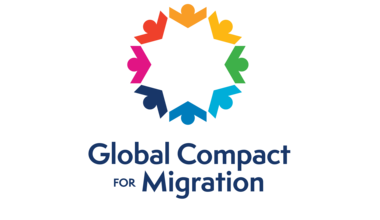On Monday 5 February 2018 the long awaited Zero Draft of the Global Compact for Safe, Orderly and Regular Migration (the Zero Draft) was released. This marks the commencement of the formal intergovernmental negotiation phase of the Global Compact process. The Zero Draft represents a gathering of information and views that have been received by the co-facilitators (Switzerland and Mexico) of the process since the New York Declaration for Refugees and Migrants in September 2016 and will form the basis of negotiations leading up to the adoption of the final Global Compact in December 2018.
The Foundation was pleased that the draft had a strong focus on the needs of climate displaced people, a key ingredient to ensuring that the Global Compact will be consistent with climate justice. The preamble of the Zero Draft rests on the principles of the United Nations Frame Work Convention on Climate Change, the Universal Declaration of Human Rights and the human rights treaties and these are embedded throughout the document. The Foundation is particularly supportive of the guiding principles which include engaging a people-centred approach, focusing on sustainable development and ensuring a human rights and gender responsive foundation underpins all considerations in the development of migration policies.
The Zero Draft also demonstrates that the co-facilitators have listened to climate vulnerable countries and voices and recognised that the Global Compact will need to respond to the phenomena of climate displacement if it is to be fit-for-purpose in the future. This is particularly clear in Objective 2 which, if adopted, in its current state will commit countries to:
Develop tailored migration schemes of various duration, including planned temporary and permanent relocation, to facilitate migration as an adaptation strategy to slow-onset environmental degradation related to the adverse effects of climate change, such as desertification and sea level rise
Follow-up mechanisms will allow the Global Compact to be revisited by countries in the future, including lessons learned and progress towards implementation.
However the Zero Draft still has room to be improved, and the Foundation will be encouraging countries to build on what has been provided, to encourage greater engagement with migrant communities and voices. In the current draft there is no provision for the inclusion of migrant voices in follow up mechanisms of the compact, and migrant voices are not strongly recognised as a stakeholder in the engagement of the objectives.
The Foundation is looking forward to continuing to work with countries as the draft progresses in order to ensure that the Global Compact remains consistent with the principles of climate justice.
Related Links
Our Work on Protecting the Rights of Climate Displaced People


